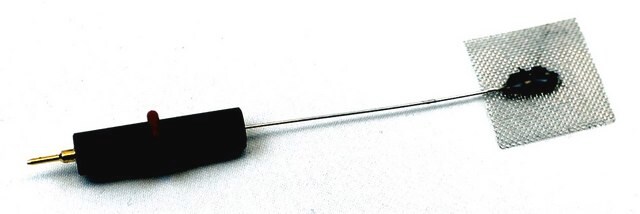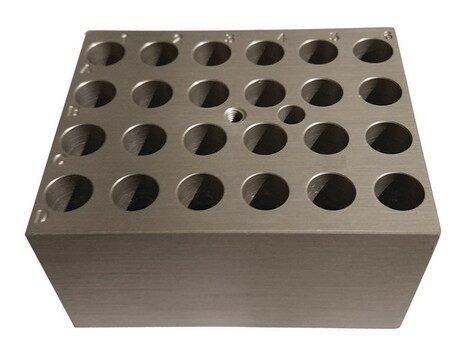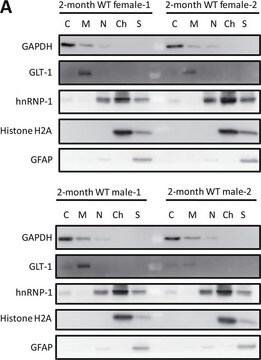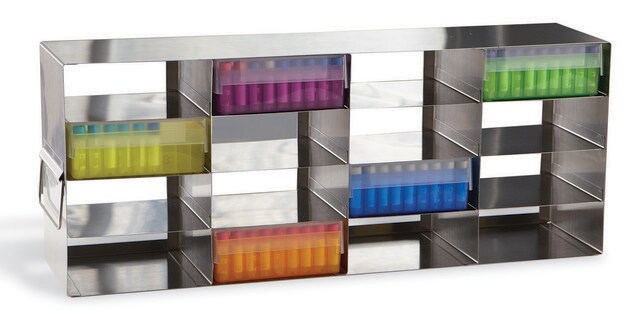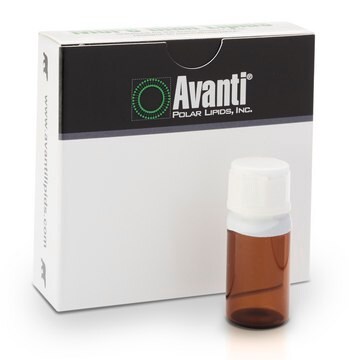HTS021RTA
Ready-to-Assay MC2 Melanocortin Receptor Frozen Cells
Human
Sign Into View Organizational & Contract Pricing
All Photos(1)
About This Item
UNSPSC Code:
41106514
eCl@ss:
32011203
NACRES:
NA.81
Recommended Products
Product Name
Ready-to-Assay MC2 Melanocortin Receptor Frozen Cells, Human MC2 GPCR frozen cells for Calcium Flux FLIPR Assays.
biological source
human
Quality Level
manufacturer/tradename
Ready-to-Assay
technique(s)
calcium flux assay: suitable
NCBI accession no.
detection method
fluorometric
shipped in
dry ice
General description
Millipore’s Ready-to-Assay GPCR frozen cells are designed for simple, rapid calcium assays with no requirement for intensive cell culturing. Millipore has optimized the freezing conditions to provide cells with high viability and functionality post-thaw. The user simply thaws the cells and resuspends them in media, dispenses cell suspension into assay plates and, following over night recovery, assays for calcium response.
The melanocortins, α-, β- and γ-melanocyte-stimulating hormones (MSHs) and adrenocorticotropin (ACTH), are peptides derived from a precursor protein POMC. The MSH peptides and ACTH bind to a family of five Class 1 Gs-coupled seven transmembrane receptors (MC1-5) and play important roles in energy balance, reproductive function, pigmentation and inflammation (Gantz and Fong, 2003). MC2, the ACTH receptor, is a member of this family but is the only one that does not bind the MSHs, it instead binds ACTH exclusively. MC2 is expressed mainly in cells of the adrenal cortex, where it signals cells in the adrenal cortex to synthesize and secrete glucocorticoids (Clark A. et al., 2006). Mutations in MC2 lead to familial glucocorticoid deficiency, or ACTH insensitivity. Familial glucocorticoid deficiency can lead to increased pigmentation and increased longitudinal bone growth (Clark A, et al. 1993, Imamine H, et al. 2005). In addition to mutations in MC2 leading to Familial glucocorticod deficiency, it has also been shown that mutations in a protein called MC2-R accessory protein (MRAP) also lead to this disorder (Clark A, 2005). Expression of MC2 on the cell surface has been found to be dependent on the interaction of MC2 with MRAP. This interaction helps to move MC2 from the endoplasmic reticulum to the cell surface. Millipore’s cloned human MC2-expressing cell line is made in the Chem-1 host, which supports high levels of recombinant MC2 expression on the cell surface and contains high levels of the promiscuous G protein Gα15 to couple the receptor to the calcium signaling pathway. Thus, the cell line is an ideal tool for screening for agonists, antagonists, and modulators at MC2.
The melanocortins, α-, β- and γ-melanocyte-stimulating hormones (MSHs) and adrenocorticotropin (ACTH), are peptides derived from a precursor protein POMC. The MSH peptides and ACTH bind to a family of five Class 1 Gs-coupled seven transmembrane receptors (MC1-5) and play important roles in energy balance, reproductive function, pigmentation and inflammation (Gantz and Fong, 2003). MC2, the ACTH receptor, is a member of this family but is the only one that does not bind the MSHs, it instead binds ACTH exclusively. MC2 is expressed mainly in cells of the adrenal cortex, where it signals cells in the adrenal cortex to synthesize and secrete glucocorticoids (Clark A. et al., 2006). Mutations in MC2 lead to familial glucocorticoid deficiency, or ACTH insensitivity. Familial glucocorticoid deficiency can lead to increased pigmentation and increased longitudinal bone growth (Clark A, et al. 1993, Imamine H, et al. 2005). In addition to mutations in MC2 leading to Familial glucocorticod deficiency, it has also been shown that mutations in a protein called MC2-R accessory protein (MRAP) also lead to this disorder (Clark A, 2005). Expression of MC2 on the cell surface has been found to be dependent on the interaction of MC2 with MRAP. This interaction helps to move MC2 from the endoplasmic reticulum to the cell surface. Millipore’s cloned human MC2-expressing cell line is made in the Chem-1 host, which supports high levels of recombinant MC2 expression on the cell surface and contains high levels of the promiscuous G protein Gα15 to couple the receptor to the calcium signaling pathway. Thus, the cell line is an ideal tool for screening for agonists, antagonists, and modulators at MC2.
Cell Line Description
GPCR Cell Lines
Host cells: Chem-1
Biochem/physiol Actions
GPCR Class: A
Protein Target: MC2
Target Sub-Family: Melanocortin
Components
Pack contains 2 vials of mycoplasma-free cells, 1 ml per vial.
Fifty (50) mL of Media Component.
Fifty (50) mL of Media Component.
Storage Class Code
10 - Combustible liquids
WGK
WGK 1
Flash Point(F)
Not applicable
Flash Point(C)
Not applicable
Certificates of Analysis (COA)
Search for Certificates of Analysis (COA) by entering the products Lot/Batch Number. Lot and Batch Numbers can be found on a product’s label following the words ‘Lot’ or ‘Batch’.
Already Own This Product?
Find documentation for the products that you have recently purchased in the Document Library.
Our team of scientists has experience in all areas of research including Life Science, Material Science, Chemical Synthesis, Chromatography, Analytical and many others.
Contact Technical Service

